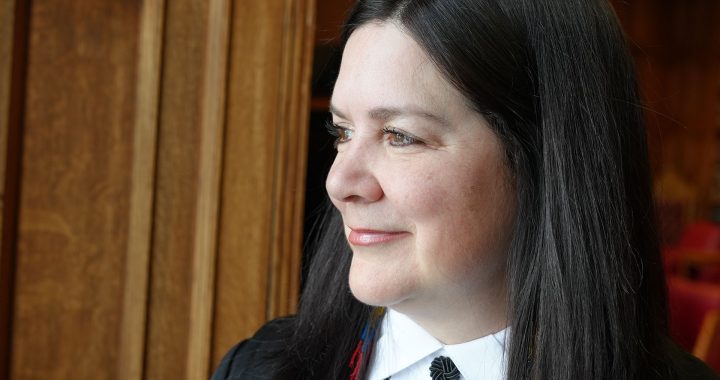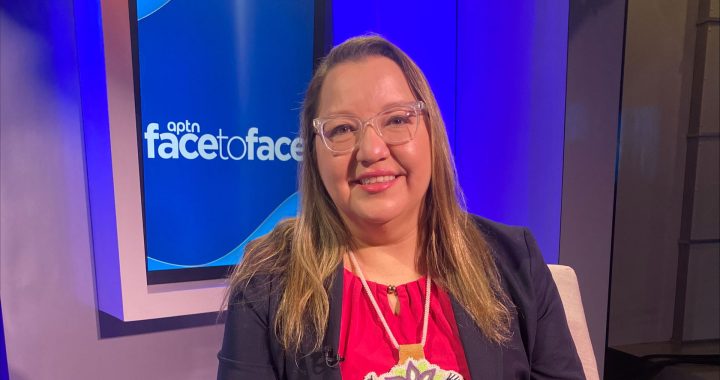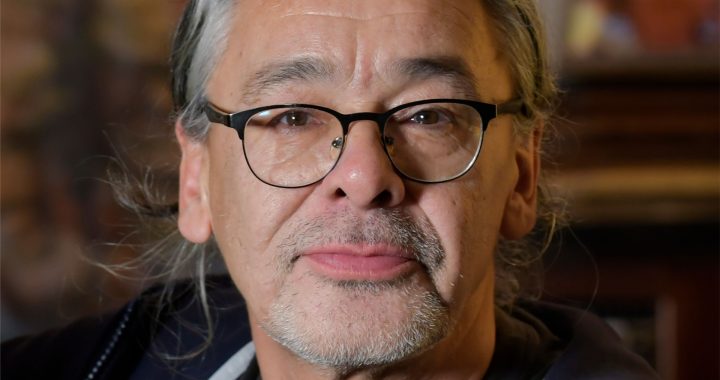Like many people, Dr. James Makokis never imagined the COVID-19 pandemic would be as bad as it has become on Turtle Island.
It was only after speaking with an Indigenous physician colleague in the northern territory of Australia that Makokis became alarmed.
His Australian colleague was worried her people could go extinct because of how the virus was evolving.
It was around this time, Kehewin Cree Nation, where Makokis practices as a family doctor, started to take a proactive and strong response by closing the community.
So far, the nation has no confirmed cases of COVID-19.
Makokis is now in week ten of working from home, virtually.
During the pandemic, Makokis’ clinic has been provided with additional money to provide virtual care and other tools needed to provide primary care.
Makokis hopes the funding and tools will remain, post-pandemic.
“That’s definitely a huge boost to being able to providing health care on the reserve because not only I can use it but other specialists can access them in the community now too and that saves patients travel from having to go off the community and travel three hours to Edmonton,” says Makokis.
Makokis says there are very few First Nations that have family doctors or nurse practitioners available for five days a week.
“It’s often episodic care where someone from outside the community comes in for maybe one day a week or one day every two weeks and you cannot continue to provide care in that way for a population that has some of the greatest health disparities because of colonization and because of the destruction of our Cree or Indigenous medical systems that have always sustained us and kept us healthy and well,” says Makokis.
Makokis, who has wanted to be a doctor since he was four years old has had to overcome adversity in order to get to where he is today.
He recalls being discriminated against on the first day of residency when he walked into a delivery room and felt his head jerk back as someone had yanked on his braid and asked him whether he was qualified to be in the delivery room.
“If Indigenous physicians themselves and are seeing those types of overt racism then what happens to our patients who come from the communities and don’t have that understanding of how to navigate the system and advocate. This further re-enforces the need for primary care to be instituted in all of our communities to improve our health outcomes,” says Makokis.
Makokis says a huge part of that is having access to traditional medicines but if you go out onto the land, especially in northern Alberta, “you can see the devastation and destruction that industrial development” has caused.
During this pandemic, Makokis believes there has been a resurgence of people looking inward at how to sustain themselves, especially with traditional medicines.
Makokis believes the world is going to be a different place post-pandemic and some of those changes could be for the better.
“In the overall picture, of how this has changed our planet, we see some of the positives that have happened with reduced air travel, reduced ground travel and how people are more open to walking or biking and being less dependent on fossil fuels,” says Makokis.
“I hope that this continues without the worry of getting COVID but a lot of the positives that happened because of the pandemic, that people don’t forget about those too,” says Makokis.
Makokis became a recognizable face last year when he and his partner Anthony Johnson competed and won the Amazing Race Canada.
The couple knew it was going to be an opportunity to bring awareness to issues that Indigenous people face and they did not want to squander that opportunity.
“One of them, obviously was for people to become aware of gender diverse or sexually diverse couples. We both identify as Two-Spirit people and we’ve always has those teaching in both of our respective cultures and nations and we never saw a Two-Spirit, married couple on TV before,” says Makokis
“I work a lot in that area and providing hormone replacement therapy for transgender people and Two-Spirit youth in particular and we wanted to them to see that there are other people like them as well as educate people about what that is.”
Makokis says he still gets emotional thinking about their win on the Amazing Race.
He says it was a win for all Indigenous people.
“It’s so rare for us to have a good news story on a national platform. We know that it happens a lot on an individual basis in our Nation’s and communities and there’s so much good work that happens by people who are doing such great things. But to be able to do that on national TV, in ribbon skirts and talk about those issues, we really felt the weight of our collective Indigenous communities beside us,” says Makokis.













